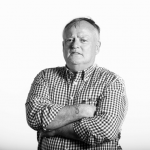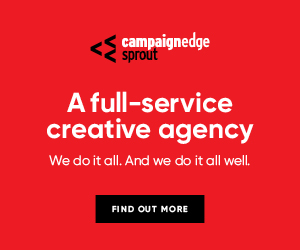GROOTE GROWS A BETTER FUTURE
Traditional Owners are delighted that high-end seafood could be harvested from their island paradise and sold to restaurants throughout Australia – and, one day, the world – within a year.


Tropical Black Lip Oysters are being grown on Groote Eylandt, an archipelago off the Northern Territory coast, as part of a groundbreaking program to develop an Indigenous owned seafood industry.
Groote Aqua Aboriginal Corporation and Groote Holdings Aboriginal Corporation are spearheading the project with the support of the Anindilyakwa Land Council.
GAAC’s aquaculture manager Dr Valentin Thepot says: “Our ambition is to breed our own oysters so we have control over the entire process from producing spats to harvesting and selling our premium oysters.”
Controlling the business from beginning to end will allow the 14 clans who own Groote Eylandt to reap the greatest economic benefit.
Research is also underway on developing a commercial seaweed-growing business.
Retailers have already made inquiries about buying one species of native seaweed, which is so tasty and healthy that it is known as green caviar and sea grape.
And there are also high hopes of growing the red seaweed Asparagopsis taxiformis, which grows around Groote and is world famous for its methane-busting capacity in ruminants, but less so as a potent aquafeed additive.
Early results from an eight-week study show that feeding young prawns on the red seaweed increases their growth rate, improves food conversion ratio, and raises immunity levels and disease resistance.
Other high-value products being targeted are lobster and trepang, which are found across the Groote archipelago.
The seafood project is part of a large capital program of economic development aimed at giving Traditional Owners security and greater control over their lives.
Other ventures range from developing a manganese mine to building a luxury eco-resort.
The master plan is part of a bold strategy to safeguard crucial social programs, such as health services, preserve culture, community support programs, education and sport, when the giant Gemco mine closes in the next seven years and royalties cease.
The land council, which represents the 14 clans, has to increase its Future Fund from present levels to a target that is large enough to permanently maintain important social programs through interest.
Land Council chair Tony Wurramarrba is passionate about creating community wealth and giving the Traditional Owners, especially the young, jobs and training opportunities.
“We are coming out from under our rock and we have woken up from a bad dream,” he says. “Luckily, we know who we are and what we have.
“We look forward to working with all of you to build a great and forever happy future living in harmony and peace.”
The land council has formed a company, Group Holdings Aboriginal Corporation, to drive the economic growth, while protecting the environment and way of life on the archipelago.
The main economic projects are:
• Bringing the Winchelsea mine on a small island off Groote into production within the next two years
• Developing the seafood enterprise
• Building a boarding school
• Creating a cultural bush camp as an alternative for Groote offenders to detention in Darwin.
All the projects are creating job opportunities for local people and subcontracts for Territory businesses.
Many Traditional Owners are already working on the projects, including on the barge servicing the mine site. International interest for the manganese from buyers exceeds supply.
The mine, which is on Winchelsea island, has an estimated life of 11 years and there is a plan to provide as many of the 100 mine jobs to Anindilyakwa people as possible.
A base camp with workshops, accommodation, kitchens and offices has just been completed to service the construction and operations of the Winchelsea project at an area called Little Paradise.
Also based there is a hatchery and grow-out ponds for the aquaculture operation.
A banking feasibility study, which is due for completion soon, shows the ore being crushed, processed on Winchelsea Island and trans-shipped by barges to Handymax vessels.
The strategy is to minimise the overall disturbance footprint while maximising the efficiencies for loading of the ore.
Traditional Owners don’t want to be left with an unused jetty when the mine closes and design has taken into consideration future aquaculture initiatives so that the minimal disturbance marina can be used in the future.
Shallow mining pits will be created in such a way that 90 hectares of growout aquaculture ponds can later be simply created with HDPE liners.
A major effort is being made to protect the environment, including planning to begin rehabilitating the mine site even before the Winchelsea mine closes, possibly as early as year seven.
The environmental impact statement has just been lodged with the NT Environment Protection Authority.
It is anticipated that mine infrastructure work will start at the commencement of the dry season in 2024 and the first shipment of manganese take place in 2025.
A large boarding school is being built on Bickerton Island.
“This will help kids to stand in both worlds for their future,” says Mr Wurramarrba.
The independent school will hold up to 50 students from age eight and have a bilingual curriculum.
Students will board with house parents Monday to Friday – a model used with great success at the college on the Tiwi Islands – and go home at weekends if they wish.
Interest in jobs at the planned mechanical workshop is high, especially among young men on Groote.
There is also a plan to open a small timber mill to handle the timber created by the minimal land clearing, and train Traditional Owners in carpentry and cabinet making.
A nursery will be developed to grow replacement trees and plants while training local people in horticulture.
Aninidilyakwa Land Council chief executive Mark Hewitt says: “Senior members of the Anindilyakwa community are particularly keen to create pathways for the younger generation to gain meaningful employment.”
One of the most innovative projects is a plan for a solar power plant, which will start as a 10MW with the potential to be increased to 40MW.
Talks are underway to integrate the renewable power supply plant on Bartalumba Road with mining company South32’s grid.
Power on Groote is fueled by diesel. The savings in diesel would help pay for the solar plant within five years. Groote entrepreneurs are being offered the chance to share in the wealth-creation drive with the building of three clan businesses – a self-operating car wash, a panel beating workshop and a spare parts shop.
Traditional Owners eventually want to open a second fuel station on the island and a fully-equipped mechanical workshop.
An attractive 50-lot residential complex for key workers, such as nurses, doctors and teachers, is being built to cater for a very significant surge in local service staffing requirements as part of the Groote suite of Local Decision Making Agreements.

Groote, like many communities throughout Australia, has a chronic housing shortage.
The land council wants the housing to be a cut above similar complexes on other communities so that the staff are tempted to stay for at least one year.
A more long-term workers’ village with a million-dollar view is to be built overlooking Deception Bay.
Traditional Owners recognise that they have to compete with Western Australia for highly-skilled mine workers so have to provide first-rate accommodation.
They want miners to be happy working on Groote and become part of the community.
“We want them to wake up each day, see that beautiful view out to sea and say, ‘I’m glad I’m here’,” says Mr Hewitt.
The grandest plan is for the worldclass eco-lodge – on an escarpment overlooking Deception and also with stunning views.
There are hopes that the project, which is expected to gain international attention, will go to tender within five years.
A marina is being developed for tugboats, mine barges, aquaculture boats and tourist vessels.
At Pole 7, a community kitchen providing 1000 free meals a day to Anindilyakwa people, is now under way.
Groote Holdings Aboriginal Corporation is determined that as much of the development work on the archipelago as possible will be carried out by Territory firms and completed over the next five years.

“The Anindilyakwa People have lived in the Groote archipelago for thousands of years, since the sea rose and gave us our land. Our Ancestral Beings who created our home are the Swordfish, Hammerhead and the Morning Star.
“We had our own way of life, our own language, but we interacted with the wider world on our own terms. We exchanged culture with our neighbours, both close and far away, economy and family.
“We are Saltwater People. For us our country is not just the land – but, also the sea as far as the eye can see. That is our country. My father used to say, ‘The sea is our supermarket.’
“We traded our products from that sea country with Warnimamalya from the north. We did that for a thousand years. We now know that our seafood was exported as far as China by our neighbours.
“We lived life on our terms, managing our own lives, speaking our own language and practising our own culture until that was stopped. That trade was shut down by the colonists that just showed up and said that they owned our land and that anybody who wanted to do business on our land needed to get their permission and pay them taxes.
“I’m telling you, that ‘we’ as Anindilyakwa-speaking people, are back! It is exactly 101 years since the missionaries arrived on Groote and took over our lives. We are taking back control of our lives.
“Over the last hundred years we have seen our health decline, our culture challenged, our children fail to be properly educated, locked up, and our land and sea exploited by foreign people for their own benefit.
“Yes, we have been getting royalties, but that is just a tiny portion of that value that has been taken away from us.
“We as Warnimamalya are here today to say we are back. We are open for business. We will work with the Government, other land councils and with all business leaders to build our future Groote. Our school, our housing, our justice system, our local government and Voice to the nation and the world.
“We are coming out from under our rock and we have woken up from a bad dream. Luckily, we know who we are and what we have.
“We look forward to working with all of you to build a great and forever happy future living in harmony and peace.”
– Anindilyakwa Land Council chair Tony Wurramarrba


